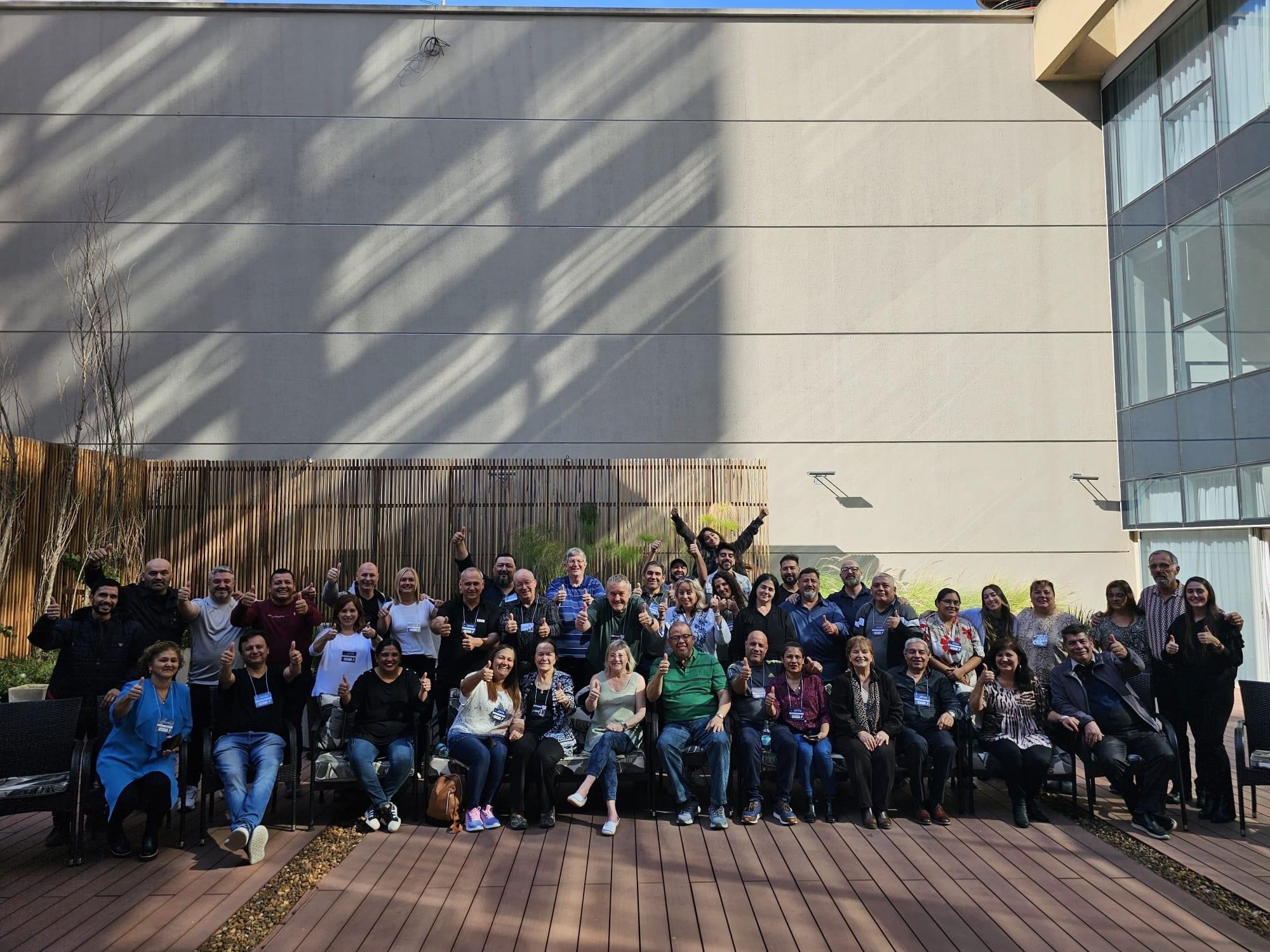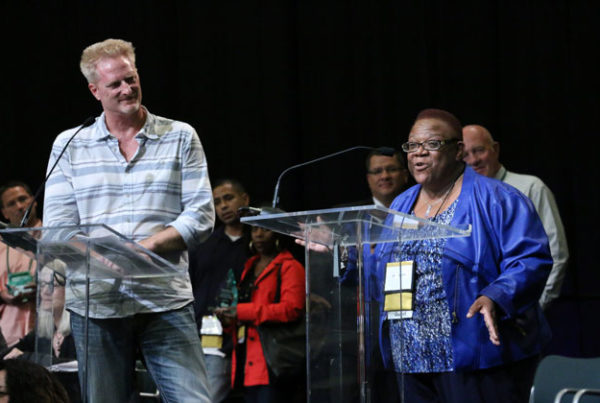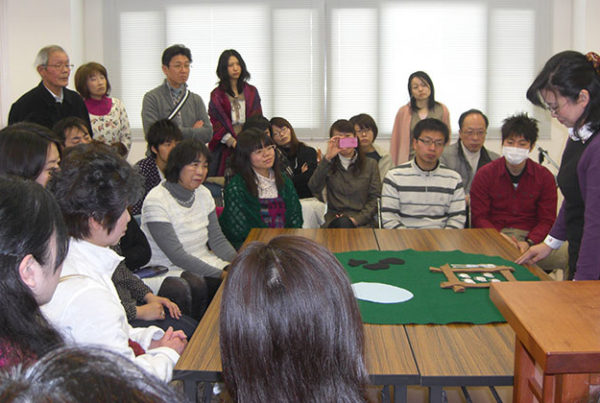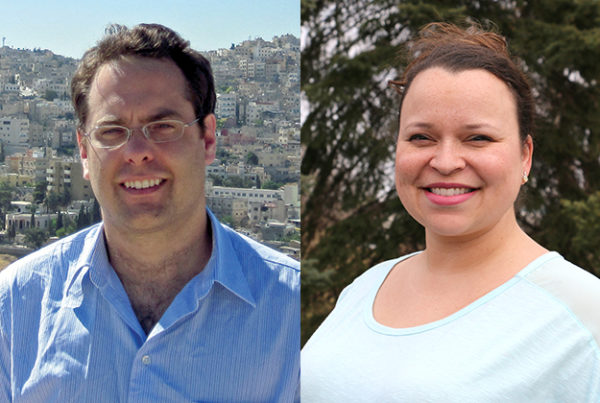By Terry DeBoer
The U.S. central plains is not a place you’d expect a raging tsunami. Yet tsunami is a word you hear regularly to describe church growth and multiplication gains in the RCA’s Central Plains Classis.
The classis, which stretches from Nebraska to Texas, has already more than doubled its 2018 goal of establishing 12 new ministries by the year 2025.
“I refer to it as a tsunami of growth,” says Dale Assink, executive strategist for the Regional Synod of the Heartland and the former Central Plains classis minister. “And I can’t help but think what is happening is meant to revive the RCA.”
The number of new churches, church plants, and ministries has more than doubled the original goal; 28 have filed a New Congregation Plan. The classis is also in discussions with additional churches and ministries that are exploring joining the RCA through Central Plains Classis. And just as with an actual tsunami, rapid growth brings substantial challenges.
“One of the challenges is being able to formulate the proper structure to handle the tsunami of new leaders coming in,” says Fabio Sosa, Hispanic coordinator for the Central Plains Classis and mission advancement director of the Regional Synod of the Heartland, of which the classis is a part.
Training and equipping these new church leaders is a necessary priority. Typically these Hispanic leaders are bivocational, meaning they are working as pastors and holding at least one other job. Typically, they are leading independent churches not connected to any denomination, according to Assink. They are short on procedure and organization and have been attracted by Reformed doctrine and the RCA church support system.
“They love our theology and the concept of classes where you covenant with a group of pastors who support you and train with you,” says Assink. “They are highly relational, so when they find a network of churches that builds on relationship, that’s also very attractive.”
Sosa said they see the same thing he did before he was ordained in the RCA eight years ago: “The values of the faith, a Christ-centered framework, and leaders who have the long trajectory of walking with the Lord and passion to teach the gospel and bring it to people.”
Assink points to Sosa as a key figure in the classis’s new momentum. From his home base of Houston, Texas, Sosa is a master coach for the classis’s Hispanic pastor network. A participant in the National Hispanic Pastors Alliance, he also serves the RCA on the executive committee of the Council for Hispanic Ministries. He has a coaching and mentoring ministry, as well.
“Coaching is where I can help develop leaders and move them forward,” he says. “I come to that from my own experience; when I began my ministry, I didn’t have anywhere close to the resources I have now.”
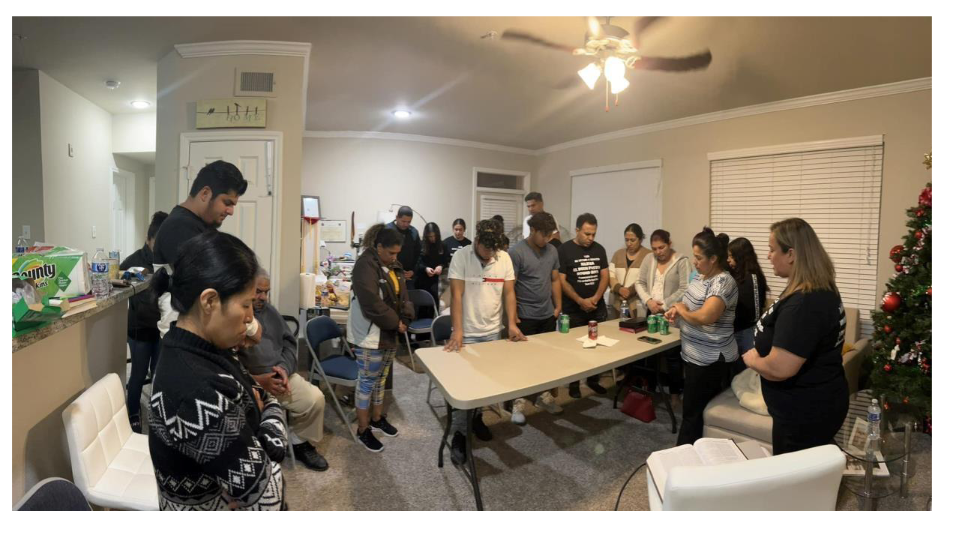
Iglesia Reformada Gracia Latiana in Austin, Texas, started holding worship in the pastor’s home before moving to a small, rented chapel
A vision of growth laid the foundation
Assink has been on the Regional Synod of the Heartland staff for 23 years. After staffing changes seven years ago he became classis leader of Central Plains.
At that time, Central Plains Classis had 13 churches. The vast majority of those churches were in decline or had plateaued, and a couple of fledgling church starts had closed. The classis told Assink to concentrate on multiplication.
With prayer and discernment, he led a team in developing a new “25 by 2025” vision statement, which was officially rolled out in early 2018. “In the next seven years, God is calling Central Plains Classis to be a classis of 25 ministries. God is calling Central Plains Classis to be a classis of 5,000 disciples,” Assink explained at the time.
About the same time, Assink had two key meetings. One was in Dallas, Texas, with Henry Alvarez, leader of an international online Christian university with extensive contacts with Hispanic students.
Alvarez expressed his interest in the RCA and passed on information to curious students. Later, Alvarez was received and ordained in the RCA. Then came the initial meeting with Sosa, who had relocated to Texas from New Jersey. Both were acquaintances of Andres Serrano, an RCA pastor who was then serving as Hispanic ministries coordinator for the RCA. Serrano is now serving as an associate director of the RCA’s Center for Church Multiplication and Ministry, with an emphasis on church multiplication.
“Every step of the way, someone was provided and a relationship happened,” says Assink.
As contacts and bonds with Hispanic church leaders developed, inquiries about the RCA and its theology increased. There was visible progress toward that visionary goal of new churches and ministries throughout Central Plains. The network of relationships also led to connections with church work in Connecticut, New York, and internationally, as well.
While Central Plains Classis was seeing growing interest, the denomination was going through the Vision 2020 process about the RCA’s future. Reckoning with divisions in the RCA, General Synod in 2021 affirmed current polity and adopted terms of gracious separation for churches that desired to leave. More than 200 churches have indicated their intention to leave the RCA or have already transferred out, many in the Synod of the Heartland. One classis, Dakota, left in its entirety. Central Plains itself lost just two churches. But it was adding many more new church plants and ministries along the way.
“Over the last few years I’ve been focused on all the growth,” Assink says. “How do you relate to these new leaders, build them up with their churches? … We’re continuing to build systems to do that.”
One of the new church plants is Iglesia Reformada Gracia Latina in Austin, Texas. It’s led by commissioned pastor Joel Aguilera, who began a worshiping group in his living room. Through radio outreach, alliances with other ministries, and personal contacts, their growth allowed them to rent a small chapel for ministry.
“We are a church that loves the needy and the lost,” says Aguilera, who, like many church planting pastors, is bivocational. “And we want to bless all those who make possible this growth of the RCA. Our goals are being fulfilled.”
Another newer ministry is New Revelations Collegiate Mission in Krum, Texas. It offers a residential setting for college students while providing mentoring, leadership skills, Bible study and faith-filled community.
Andrea Godwin-Stremler and her retired Army chaplain husband, Ted, are the leaders of this effort.
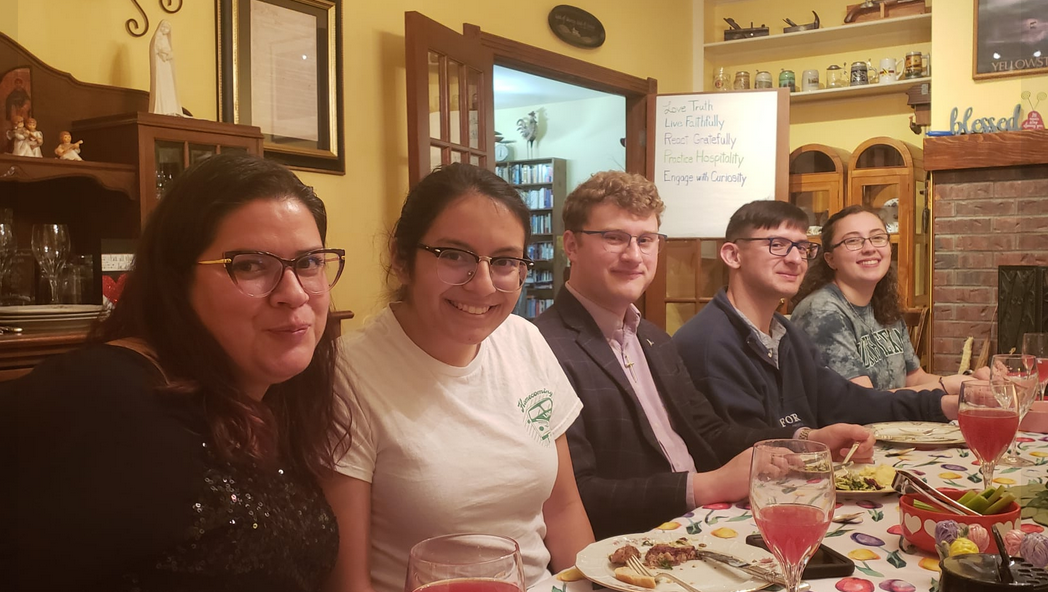
Students celebrate Valentine’s Day at New Revelations Collegiate Mission in Krum, Texas.
Interest grows internationally
In the spring of 2023, Assink and Sosa headed an classis trip to Argentina, the South American nation where Sosa was born and raised by a church-planting pastor. Joining them were fellow Central Plains leaders Ted and Andrea Godwin-Stremler and classis project manager Rick Clark. RCA general secretary Eddy Alemán and Luis Ruiz, supervisor of RCA mission in North America, Latin America, and the Caribbean, were also on hand.
“I went on the trip with a little bit of skepticism,” admits Clark, a retired Northwestern College Spanish instructor. “My skepticism was answered in that God brought [these church leaders] to the plate of the RCA. God was saying, ‘We’ve got pastors here who love me, and they need some training.'”
A two-day training seminar in Mar Del Plata, Argentina, with about 40 pastors opened his eyes to new possibilities. Here were church leaders eager for Christian learning from a Reformed perspective, with passion for reaching others with the gospel.
Clark says they met one-on-one with 38 different leaders. These were initial conversations with pastors or pastor couples who are interested in affiliating with the RCA. “It was great to hear their faith testimonies, be challenged by who they were, and hear why they were interested in us.”
Assink says the classis is working to build the system for credentialing pastors outside North America, after which their churches could eventually affiliate with the RCA.
Visioning ahead
The greatest task remains creating the framework, networks, and support persons to provide the training, resources, and accountability needed in ministry. Also, more leaders will be required to share the load of responsibility, which is now in the hands of relatively few.
“We have a fabulous team that is working hard to create these structures,” says Sosa. “We have the tools and some pretty good ideas on how to face this tsunami coming in.”
Editor’s note: Comments from Fabio Sosa were interpreted from Spanish by Rick Clark.


